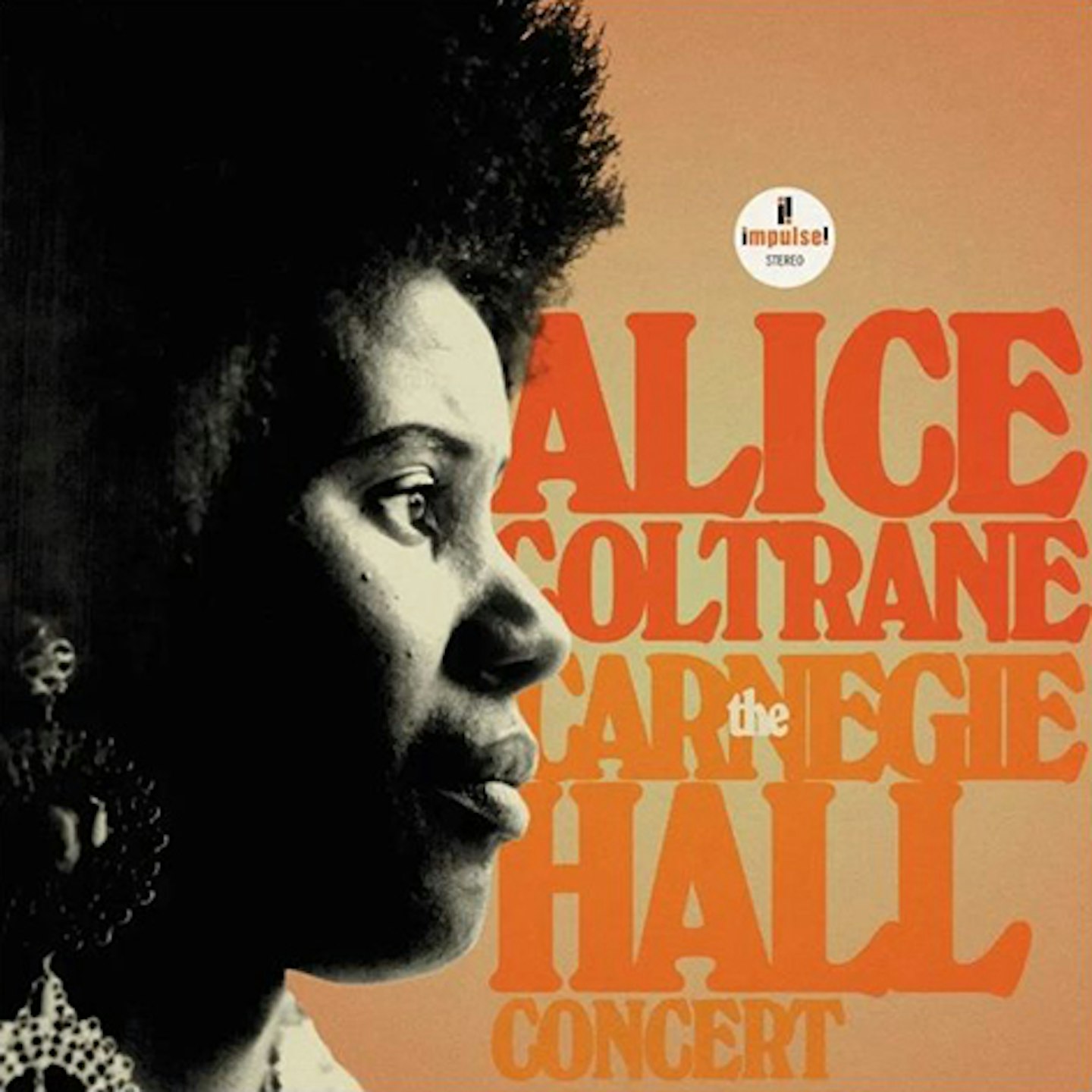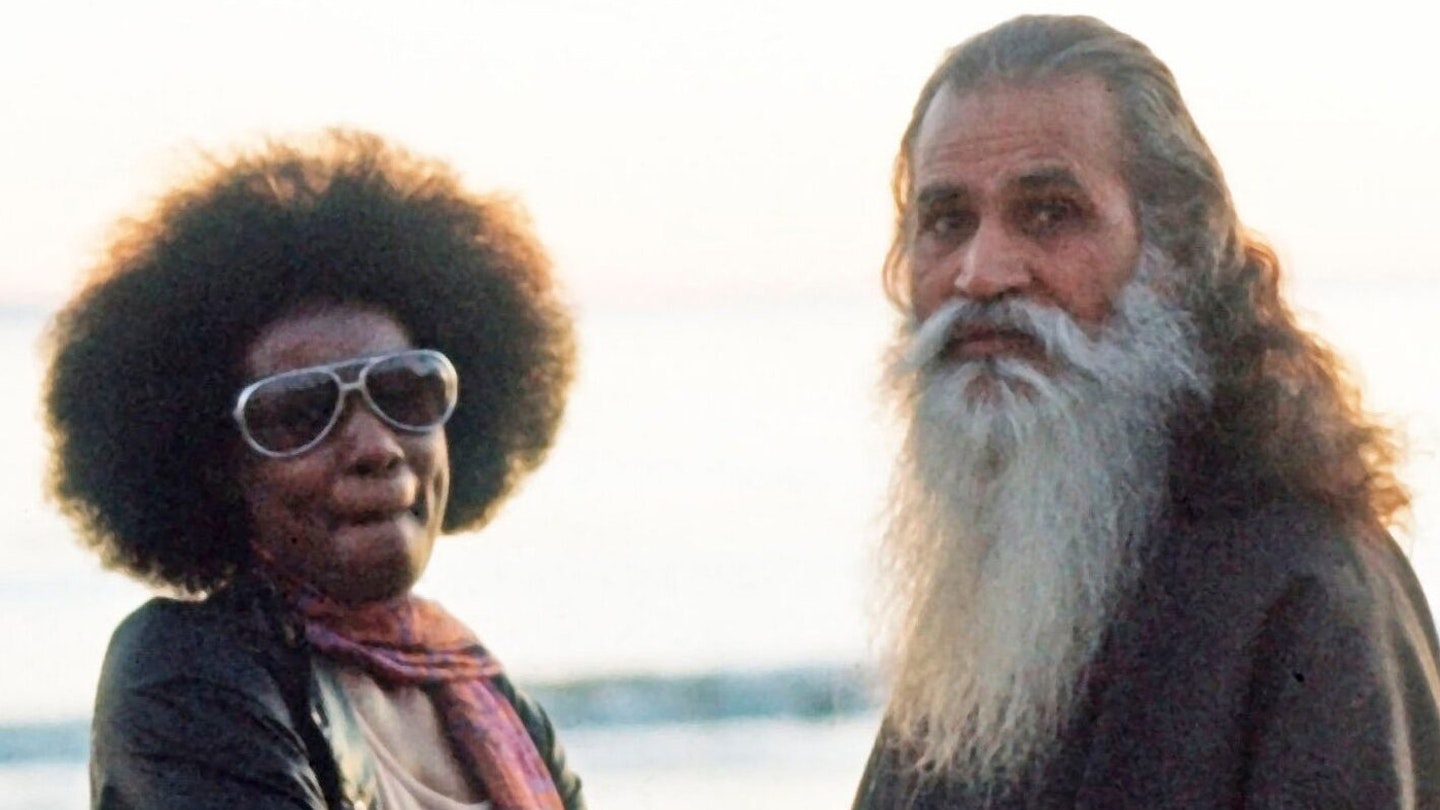Alice Coltrane
The Carnegie Hall Concert
★★★★
IMPLUSE

WHEN ALICE Coltrane took the stage at New York’s Carnegie Hall on February 21, 1971 she’d just returned from a five-week sojourn in India where she’d swum in the Ganges, visited the holy city of Rishikesh, and found a certain kind of peace, a salve to the pain she’d been experiencing since the death of her husband, John, in 1967. As quoted by Lauren Du Graf in the long-form essay that accompanies this release, Coltrane said, “The trip to the East gave me the spiritual motivation to come out more – to do more with my music.” Part of a series of benefit performances to raise money for her guru, Swami Satchidananda [pictured above], the Carnegie Hall concert finds Coltrane in an intense state of divine liberation.
Playing with an expanded double quartet comprised of Pharoah Sanders and Archie Shepp on tenor and soprano sax, Jimmy Garrison and Cecil McBee on bass, Ed Blackwell and Clifford Jarvis on drums, plus Swami Satchidananda followers Tulsi Reynolds and Kumar Kramer on tamboura and harmonium, Coltrane sets off proceedings with a new composition, Journey In Satchidananda, from her recently released fifth studio LP. It begins as a heavy, creaking procession anchored in slow contemplation by bowed and plucked bass and chiming cymbals before Coltrane’s cascading harp glissandos and Pharoah Sanders’ breathy, keening flute fill the groove with layers of bright, glistening sunlight. Then, Archie Shepp’s soprano sax breaks through with a high, hovering gospel-blues wail. It’s a massing of the troops, an indication of just what this double-quartet are capable of. Another harp number, Shiva-Loka, goes deep into a world of slow, ethereal meditation, the percussive, double-kit groove of Blackwell and Jarvis locked in conversational communion as Shepp and Sanders’ soprano saxes chatter and cry over the surface.
However, little prepares us for the epic, half-hour version of John Coltrane’s Africa that follows. Beginning with a Blackwell and Jarvis floor-tom battle, Coltrane’s agitated, roiling keyboard chimes are soon interlaced with wild-free blowing from Sanders and Shepp in an extended act of screeching liberation that is simultaneously joyous and terrifying. Ultimately, it feels like a cabalistic mass, a summoning of the spirit of John Coltrane and Africa itself. Defined by an hypnotic 10-minute bass solo, McBee hands over to Garrison who imitates the vocal cadences of the Nigerian talking drum before all nine players return for a wailing Africa coda and a barnstorming, funk-heavy and utterly free rendering of John Coltrane’s 1966 composition, Leo. Remastered from Ed Michel’s 2-track “reference mix” (after both 4-track masters were lost), The Carnegie Hall Concert now sounds magnificent despite a few rare spots of distortion. What began as a benefit for Swami Satchidananda and evolved into a summoning of John Coltrane’s spirit now stands as a tribute to the liberating force of Alice Coltrane herself. It’s a communion. Drink deep.
The Carnegie Hall Concert is out now on Impulse.
Listen/Buy: Spotify | Apple Music | Amazon | Rough Trade | HMV
Picture: Satchidananda Ashram-Yogaville
